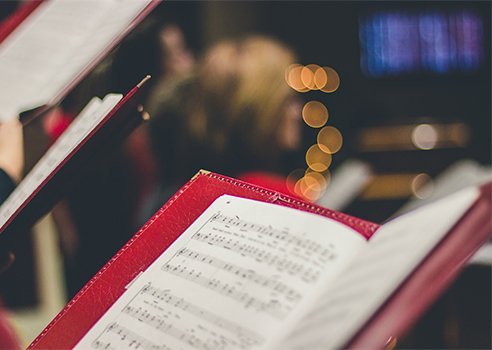Reading time: Less than 1 minute
This is my weekly installment of “writing about writing,” in which I scan the world to find websites, books and articles to help other writers. Today I discuss an article on the grammar of Christmas carols…
I regret to confess that I began playing Christmas carols on the piano on November 21. This is not because I’m a zealot for Christmas music. It’s because I’m in only my second year of piano lessons and my teacher wanted me to get started good and early.
In this way, I’ll have some pieces fully rehearsed by the time the holiday actually rolls around. My poor family! I think they’d become tired of Joy to the World by Dec. 1.
Meanwhile, my high school friend, Marcelle, who is a musician, passed along to me a link about the grammar of holiday songs. I love it! In this piece, linguist Arika Okrent deconstructs Silent Night, Deck the Halls and four other tunes for their points of grammar. Read her piece for some useful insights.
For me, her most interesting revelation rested on the comma placement in God Rest You Merry, Gentlemen. I’ll let her explain:
The gentlemen in this phrase are not necessarily taken to be merry already. It’s not “Hey, you! You merry gentlemen! God rest you!” It’s “Hey, you gentlemen over there! May God rest you merry!” In Shakespeare’s time, “rest you merry” was a way to express good wishes, to say something like “peace and happiness to you.”
So, let nothing dismay you, grammar-wise, as you set about preparing for your own holiday celebrations.


